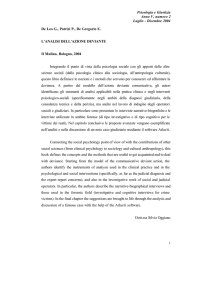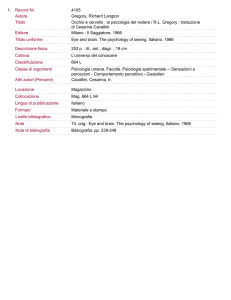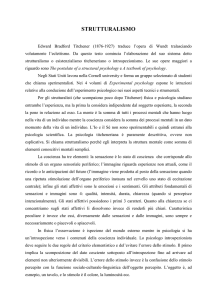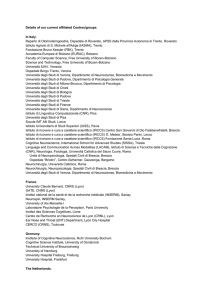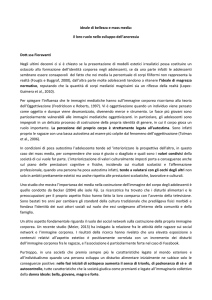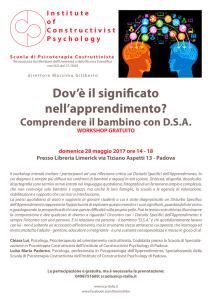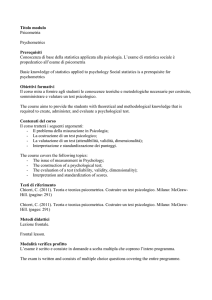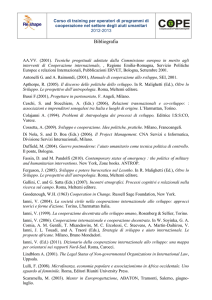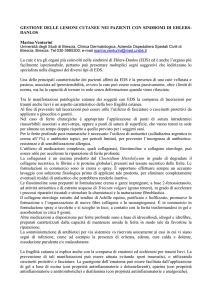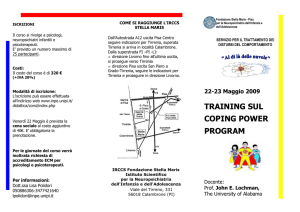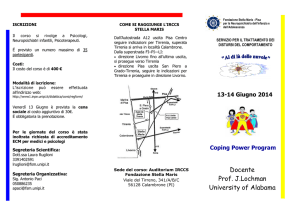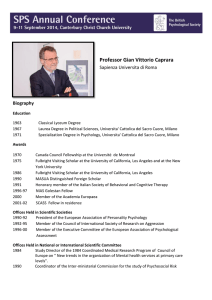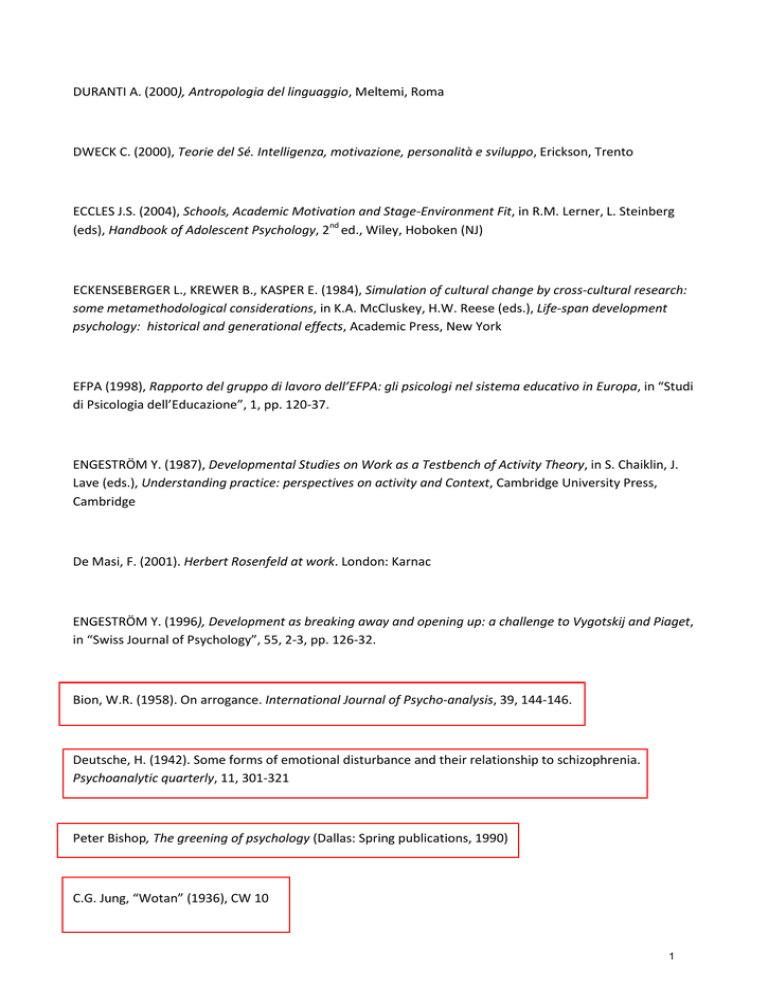
DURANTI A. (2000), Antropologia del linguaggio, Meltemi, Roma
DWECK C. (2000), Teorie del Sé. Intelligenza, motivazione, personalità e sviluppo, Erickson, Trento
ECCLES J.S. (2004), Schools, Academic Motivation and Stage-Environment Fit, in R.M. Lerner, L. Steinberg
(eds), Handbook of Adolescent Psychology, 2nd ed., Wiley, Hoboken (NJ)
ECKENSEBERGER L., KREWER B., KASPER E. (1984), Simulation of cultural change by cross-cultural research:
some metamethodological considerations, in K.A. McCluskey, H.W. Reese (eds.), Life-span development
psychology: historical and generational effects, Academic Press, New York
EFPA (1998), Rapporto del gruppo di lavoro dell’EFPA: gli psicologi nel sistema educativo in Europa, in “Studi
di Psicologia dell’Educazione”, 1, pp. 120-37.
ENGESTRÖM Y. (1987), Developmental Studies on Work as a Testbench of Activity Theory, in S. Chaiklin, J.
Lave (eds.), Understanding practice: perspectives on activity and Context, Cambridge University Press,
Cambridge
De Masi, F. (2001). Herbert Rosenfeld at work. London: Karnac
ENGESTRÖM Y. (1996), Development as breaking away and opening up: a challenge to Vygotskij and Piaget,
in “Swiss Journal of Psychology”, 55, 2-3, pp. 126-32.
Bion, W.R. (1958). On arrogance. International Journal of Psycho-analysis, 39, 144-146.
Deutsche, H. (1942). Some forms of emotional disturbance and their relationship to schizophrenia.
Psychoanalytic quarterly, 11, 301-321
Peter Bishop, The greening of psychology (Dallas: Spring publications, 1990)
C.G. Jung, “Wotan” (1936), CW 10
1
Andy Fisher, “To praise again: phenomenology and the project of ecopsychology”, Spring 76: 159
Cary Wolfe, “Fathers, Lovers and Friend Killers: Rearticulating Gender and Race Via Species in Hemingway”,
Boundary 2, 29(1)(2002): 226
2

